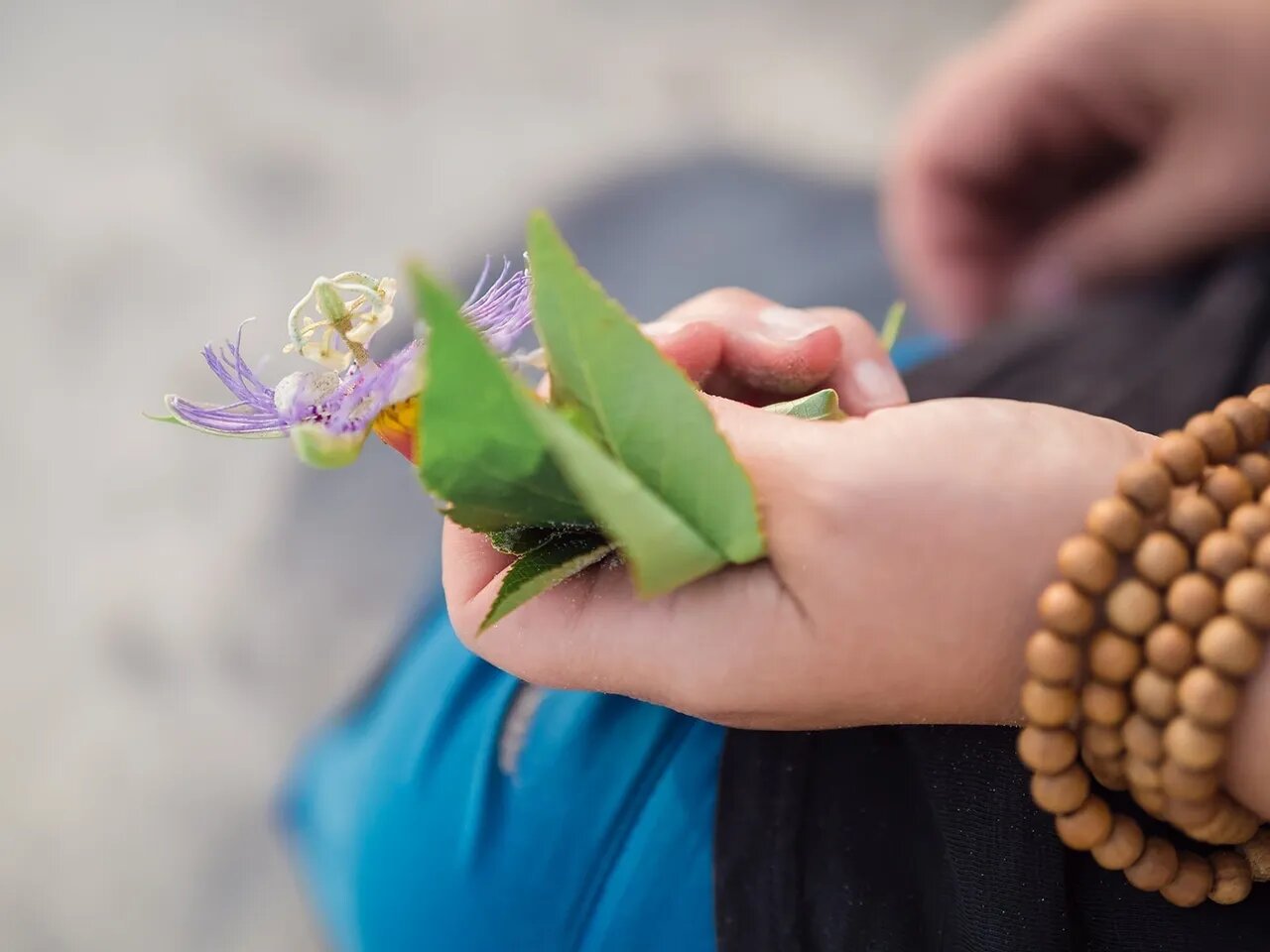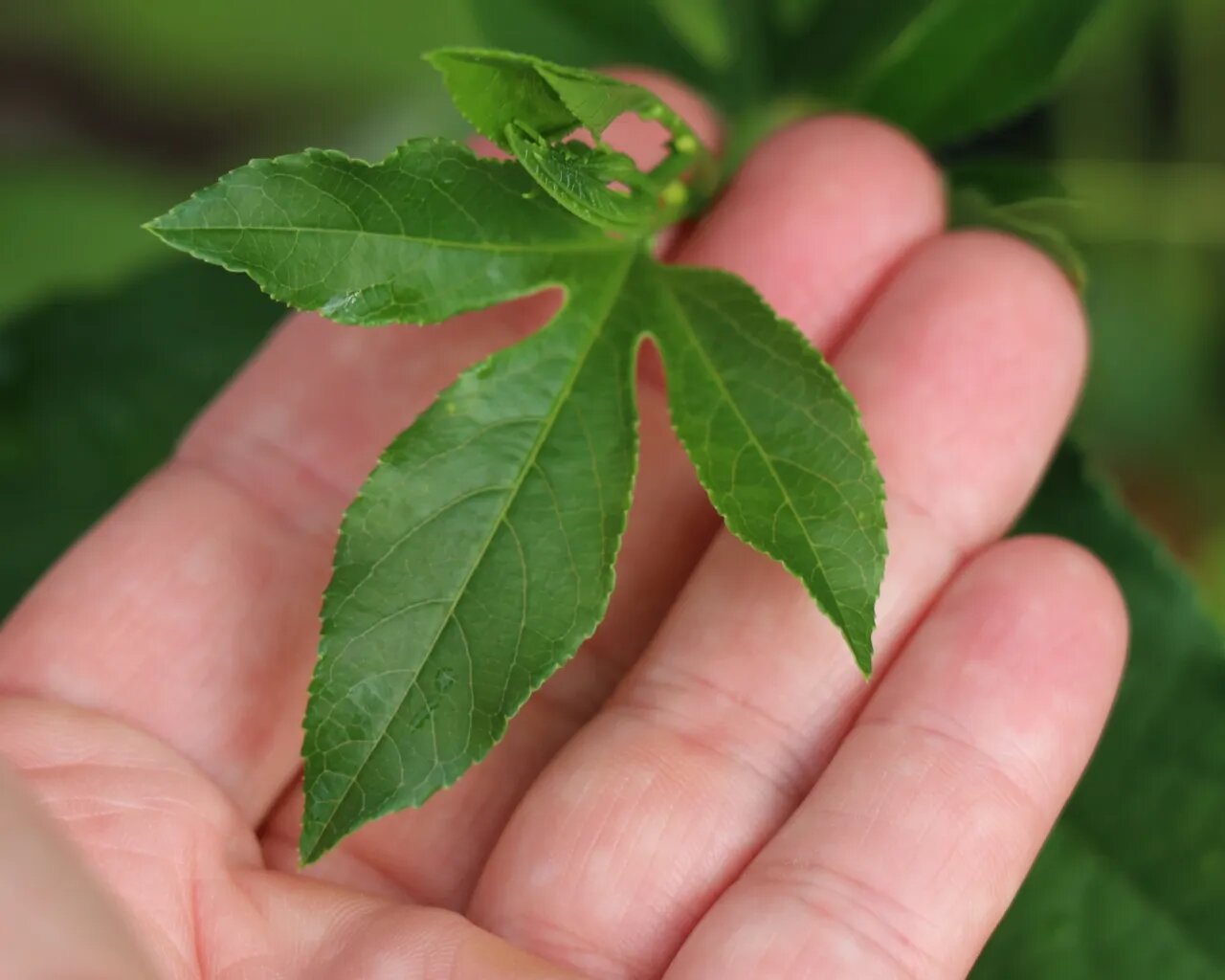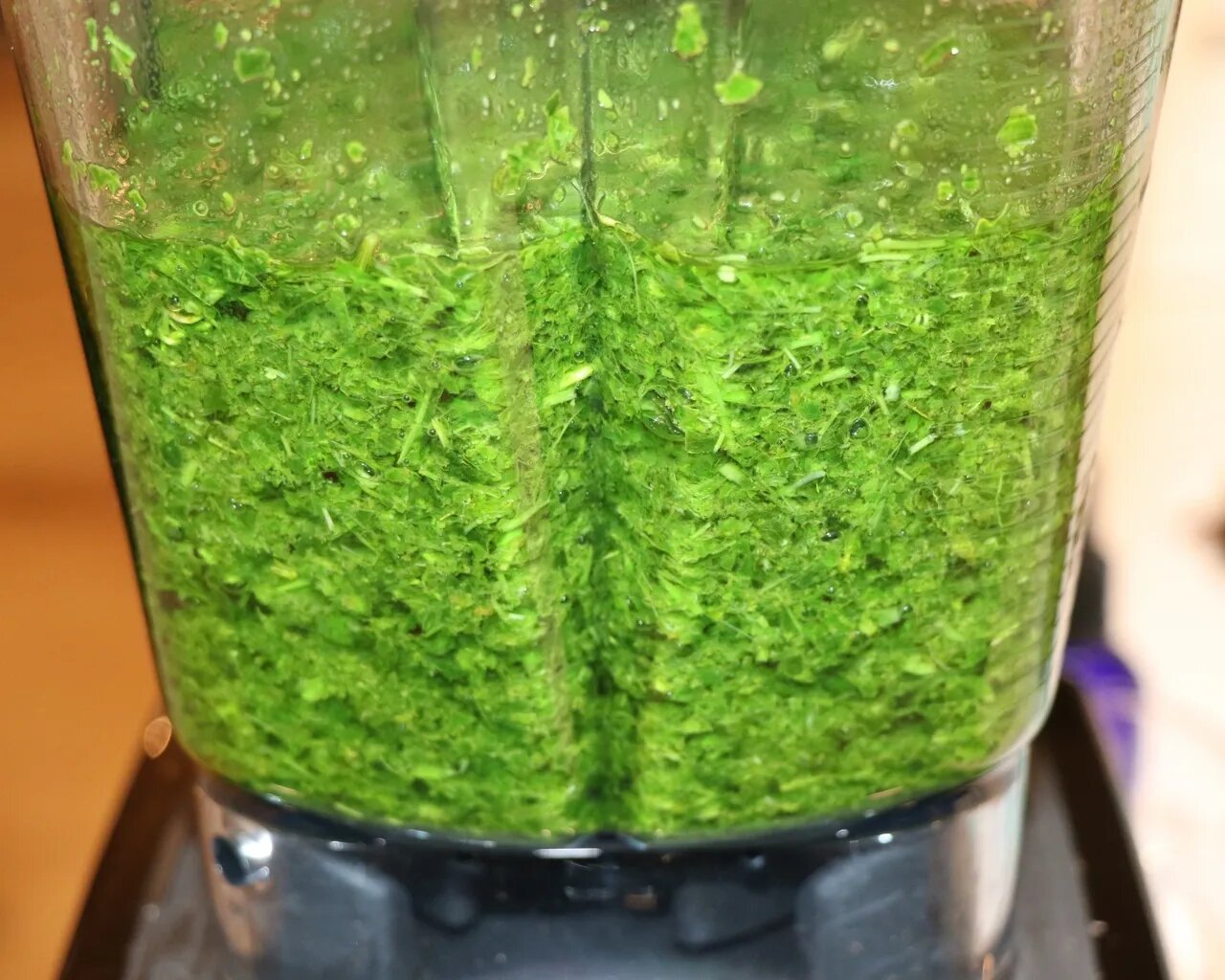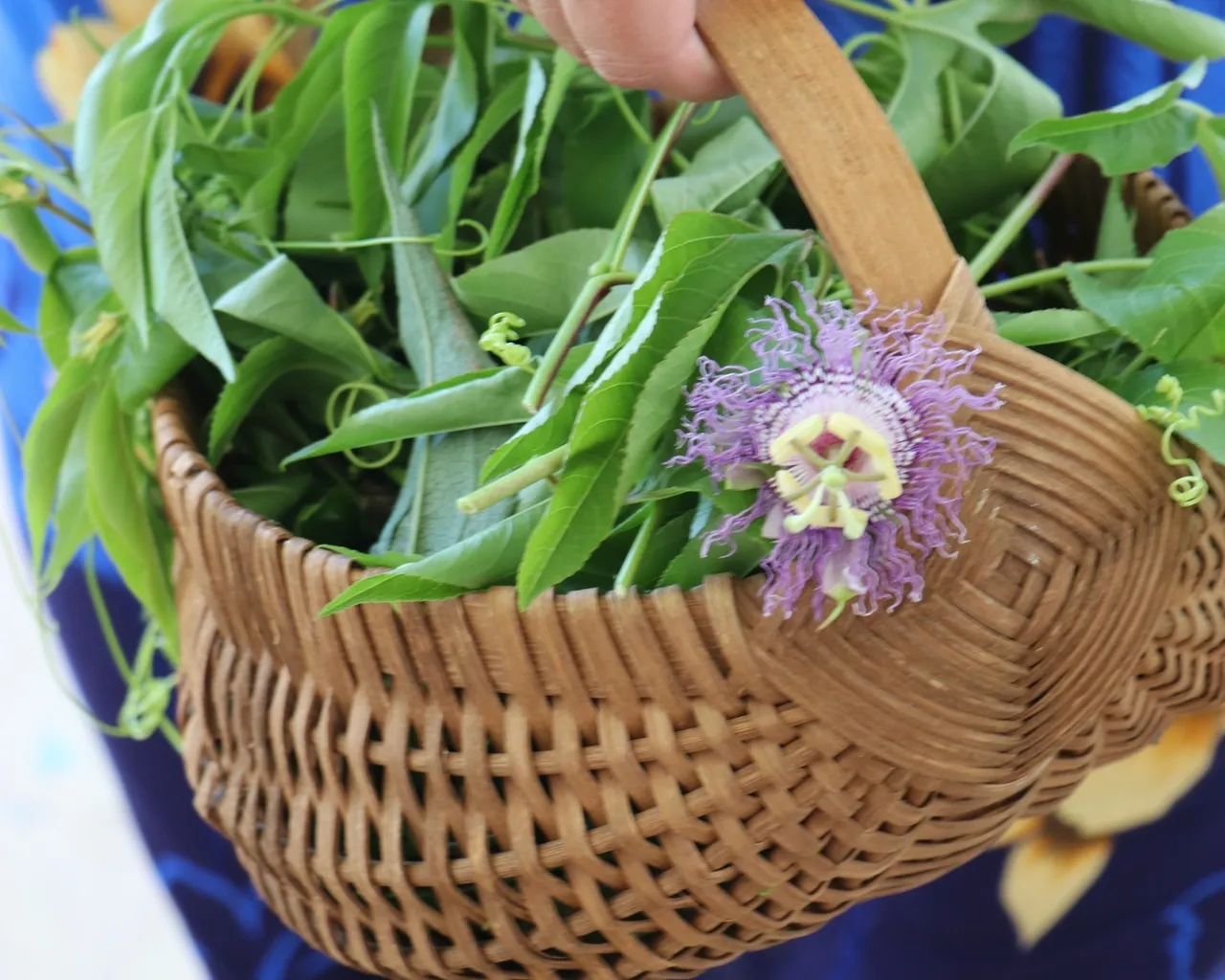Connect and Make Medicine with Passionflower
Jul 18, 2021
Passionflower (Passiflora incarnata) grows from New Jersey south to Florida and west into Texas. In Charleston, South Carolina, passionflower grows like a weed along the Coast and into the Piedmont. If you look and search hard enough along roadsides, fencerows, thickets, and fields, you will find passionflower.
I speak from experience because I stumbled upon passionflower at our new house after searching for it multiple times. I didn't think it occurred on our property. I walked along our wild thicket that serves a wildlife refuge and as a barrier from the road a dozen times and no passionflower...until that one day when it popped out of nowhere and said Hi. Now, I contemplate what to do with the two passionflower vines that I bought from a nursery....not sure where the genetic material comes from?
Passionflower has a long history of medicinal and edible use from the leaves being used as a potherb to the roots being used to strengthen and cleanse the blood (Houma indigenous people). Perhaps the most popular use today is the leaves and flowers being used as a nervine (an herb used to calm the nerves). It is known to help ease nervousness, agitation, nervous headaches, and restlessness. If you peruse the stress and anxiety relief products at any health food store and read the ingredients probably 5 out of 10 contain passionflower.
To me, this herb is very nourishing and grounding. The leaves contain several tastes/flavors- sweet, salty, pungent, and slightly bitter. The multiple flavor profiles, tell me that this herb is very nourishing on multiple levels- mind, body, and spirit. Passionflower helps me let go, be present, and content. It helps release tension held in my body.
Research conducted on this herb revealed that it contains alkaloids and flavonoids that have sedative effects. Also, the properties in this herb have shown to protect the brain from oxidative stress and to protect against parkinson's disease.
It is useful in herbal formulas for insomnia, anxiety, drug dependence, acute withdrawal, and in formulas for nervous system issues -convulsions, neuropathy, and epilepsy. In Ayurvedic medicine, the genus Passiflora is used as a treatment for male impotence and postmenopausal decline in libido in females. This is interesting to me because the sweet flavor in Chinese Medicine is known to improve impotence and lack of semen. Side note-I only taste the sweet flavor in fresh material.
If you struggle with any kind of nervous tension, relestness, or anxiety-this is your herb! Or if you tend to hold onto the past and have trouble letting go-this is your herb.
Let's talk a little more about how to incorporate this herb into your life. The easiest way is to build a connection with passionflower is to nibble the young leaves and add them to your soups and salads. I LOVE to eat one to two passionflower leaves per day. I mindfully collect the leaves and close my eyes to fully experience the complex flavor profile. I especially love the sweet and slightly salty flavors of the leaf.

You can make a tincture from the young leaves and flowers. Making a tincture is an easy way to harness the medicine in the early summer months when passionflower starts growing rapidly. You want to harvest the leaves and flowers in the early summer before the plant starts to produce fruit, the maypops. If you miss this period, you can still make a tincture. However, the medicine may be a little weaker because the plant is putting resources into fruit production. To make a tincture, use 60 to 70% alcohol. The first time I made a passionflower tincture, I made the mistake of using 95% alcohol and then I read that the medicine extracts better with diluted alcohol.

Passionflower tincture is great to have on hand during times of high stress, restlessness, or anxiety. Because alcohol quickly enters the bloodstream and affects the nervous system, alcohol is a great solvent for many nervine herbs.

All you need is one small basketful to make your first passionflower tincture. We cover this herb in-depth and how to make tinctures in our flagship course, Botanical Medicine Movement, when we cover "Herbs for the Nervous System". https://courses.yaholaherbalschool.com/courses/botanical-medicine-movement-SummerFall
I could go on and on about passionflower, but I have to end this blog post. I highly recommend growing and getting to know passionflower. Slowly get to know the herb by growing it, eating it, and then make medicine-a tincture.
Be Well Plant Friend!
With Gratitude and Love,
April Punsalan

